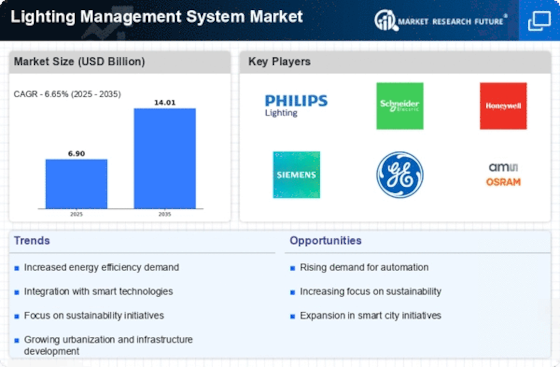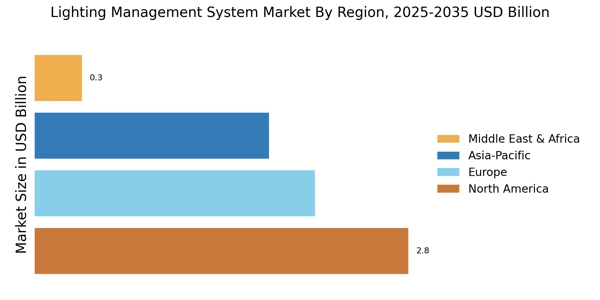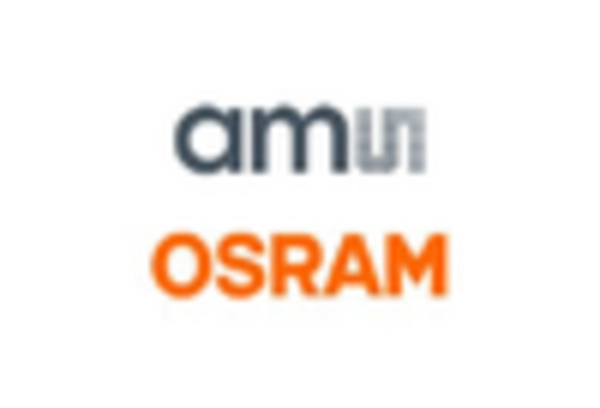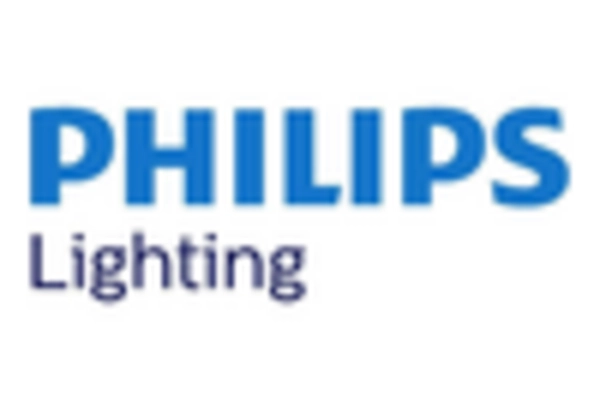Government Initiatives and Incentives
Government initiatives aimed at promoting energy efficiency are significantly influencing the Lighting Management System Market. Various countries have introduced regulations and incentives to encourage the adoption of energy-efficient lighting solutions. These initiatives often include tax rebates, grants, and subsidies for businesses that implement advanced lighting management systems. As a result, organizations are more inclined to invest in these technologies, knowing that they can offset some of the initial costs through government support. This regulatory environment not only stimulates market growth but also fosters innovation within the Lighting Management System Market, as companies strive to meet evolving standards.
Growing Awareness of Health and Well-being
The growing awareness of health and well-being is emerging as a crucial driver in the Lighting Management System Market. Research indicates that lighting has a profound impact on human health, influencing mood, productivity, and overall well-being. As workplaces and public spaces increasingly prioritize the health of occupants, there is a rising demand for lighting solutions that can be tailored to enhance comfort and productivity. This trend is prompting organizations to invest in advanced lighting management systems that offer customizable settings and dynamic lighting options. Consequently, the Lighting Management System Market is likely to see a shift towards solutions that not only focus on energy efficiency but also on creating healthier environments.
Rising Demand for Smart Lighting Solutions
The Lighting Management System Market is experiencing a notable surge in demand for smart lighting solutions. This trend is largely driven by the increasing adoption of Internet of Things (IoT) technologies, which enable enhanced control and automation of lighting systems. According to recent data, the smart lighting segment is projected to grow at a compound annual growth rate (CAGR) of approximately 20% over the next five years. This growth is indicative of a broader shift towards intelligent infrastructure, where lighting systems are integrated with other building management systems. As urbanization continues to rise, the need for efficient and adaptable lighting solutions becomes paramount, further propelling the Lighting Management System Market forward.
Emphasis on Sustainability and Energy Conservation
Sustainability has emerged as a critical driver within the Lighting Management System Market. Organizations are increasingly prioritizing energy conservation measures to reduce their carbon footprint and operational costs. The implementation of advanced lighting management systems can lead to energy savings of up to 30% or more, depending on the technology employed. This focus on sustainability aligns with global initiatives aimed at reducing greenhouse gas emissions, thereby enhancing the appeal of energy-efficient lighting solutions. Furthermore, as consumers become more environmentally conscious, businesses are compelled to adopt practices that reflect these values, thereby fostering growth in the Lighting Management System Market.
Technological Advancements in Lighting Control Systems
Technological advancements are playing a pivotal role in shaping the Lighting Management System Market. Innovations such as wireless communication protocols, advanced sensors, and artificial intelligence are revolutionizing how lighting systems are managed. These technologies facilitate real-time monitoring and control, allowing for dynamic adjustments based on occupancy and ambient light levels. The integration of such technologies is expected to enhance user experience and operational efficiency significantly. Market data suggests that the adoption of these advanced control systems could lead to a 25% increase in system efficiency, thereby attracting more stakeholders to invest in the Lighting Management System Market.

















